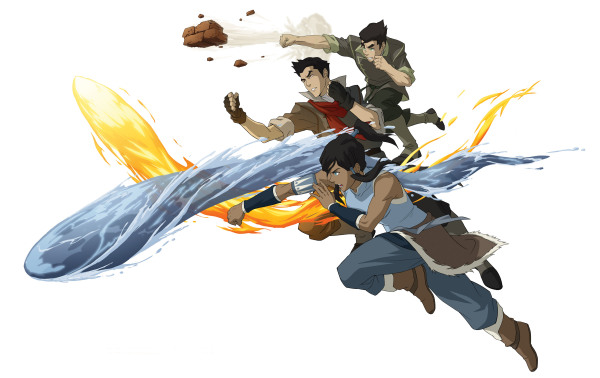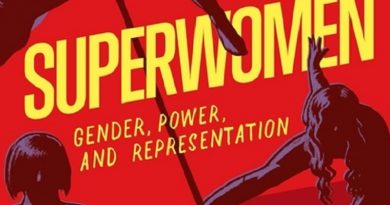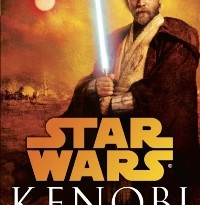The Unreluctant Hero Korra
 This week the L.A. Times HeroComplex interviewed Legend of Korra co-creators Michael Dante DiMartino and Bryan Konietzko and Korra voice actress Janet Varney. They discuss the influences on the character’s development, creating a hero with flaws, and their storytelling philosophy of balance and empathy. Konietzko shares that one of his three sisters is very Korra-like, but that he also draws on female MMA fighters. DiMartino wanted Korra to be a girl because it was different than Aang. They also talk about other ways she’s unlike Aang, particularly that she is not a reluctant hero, as her famous opener reminds us: “I’m the Avatar. You gotta deal with it!”
This week the L.A. Times HeroComplex interviewed Legend of Korra co-creators Michael Dante DiMartino and Bryan Konietzko and Korra voice actress Janet Varney. They discuss the influences on the character’s development, creating a hero with flaws, and their storytelling philosophy of balance and empathy. Konietzko shares that one of his three sisters is very Korra-like, but that he also draws on female MMA fighters. DiMartino wanted Korra to be a girl because it was different than Aang. They also talk about other ways she’s unlike Aang, particularly that she is not a reluctant hero, as her famous opener reminds us: “I’m the Avatar. You gotta deal with it!”
HC: Korra is a unique heroine. Are there any characters that paved the way for her or served as an inspiration?
BK: There’s no one thing, because Mike and I create together, and even if one person has an idea for a character, other people add to it, and then you know, the voice actors bring a whole new dimension to it. But it did dawn on me that one of my sisters — I have three sisters — but one of them in particular is like Korra…She is kind of similar. But I mean, it was also professional athletes, female MMA fighters. I’m really into mixed martial arts. Aang was such a cool character, but he was so specific in his personality, and I’d be watching a fight and thinking, “Man, it would be cool to have a character like her.” These kinds of characters are pretty natural to us.
MDM: I always don’t exactly know how to answer that, because it’s like, “I don’t know. It’s just a cool character. Whether it’s a boy or a girl. I mean, we specifically wanted to make it a girl, because it was different than Aang. And we wanted to make her more headstrong and not the reluctant hero. Part of that was just to differentiate it from the old series so we weren’t retreading the same types of stories, and we knew with a character like that, you open up a whole new area of stories that you can tell. And having her already have learned all the elements, or three of the four, when the story started, it’s like we didn’t want to do just the same, “Oh then she’s going to go learn fire-bending, and then she’s going to learn earth-bending…” So we kind of jumped ahead a little bit in her maturation process.
HC: What about you, Janet? Any particular influences?
JV: Well, it’s so funny. Buffy makes sense to me for sure. I think the difference is that Buffy was kind of reluctant to take upon her responsibilities, and Korra is very much the opposite. Korra is very much like, “Oh this is going to be my identity.” So there’s a big difference there, right? That sort of reluctance and a desire to be a regular teenager that a character like Buffy had, and Korra’s more like, “What do I do?! When do I start?!”
The unreluctant hero isn’t new to storytelling, but it’s not as common and it’s rarely a female character. The Star Wars Expanded Universe actual braved this sort of hero with Jaina Solo’s heroic arc in the New Jedi Order. Like Korra, she was a skilled competitor, proving her credentials as a young teen by besting Jedi Knight Kyp Durron’s record-setting time in Lando’s Folly. She joined Rogue Squadron, volunteered for the suicide mission to Myrkr, took initiative to design countermeasures against the Yuuzhan Vong bio-engineered weapons, and played the part of the Trickster Goddess in a psych-ops effort against the alien invaders. Her twin brother Jacen, on the other hand, experienced an extended reluctant hero arc that stretched all the way to the end of the nineteen-book series, while Jaina’s arc was completed in Destiny’s Way. Later in The Clone Wars, Ahsoka again played out as the all-in hero, who earned her way into fans’ hearts.
Like the backlash surrounding Korra – with some calling her bratty and impetuous, even unheroic – Jaina’s portrayal in the New Jedi Order experienced similar criticism in some circles of the Star Wars community. Interestingly enough, it was traits such as her headstrong personality, her athletic skills, her willingness to shoulder the duties of the hero, and her initiative that drew me to Jaina’s character. And I wasn’t alone, as I detailed in my post about the missing demographic of Star Wars fans. Today, with more women than ever feeling empowered to speak up, join discussions, or create their own safe places to have discussions, the voices of fans who want more characters like Jaina, Korra, and Ahsoka are increasingly gaining visibility.
HC: Do you relate to Korra?
JV: I talk about this a lot because it really is honestly true. I don’t have any of the amazing powers that Korra has, but I really relate to a lot of her character defects, ha-ha! And I’ve been amazed at the way that the scripts and the storylines unfold. Obviously things are happening to her that are completely unlike anything I go through in my own life, except that there are constantly things that come up for me when I’m reading the scripts and recording that then do play a role for me. I always talk about how in Book 1, when she’s learning how to air-bend, and she’s so impatient, and it takes a child to say, “Be the leaf!” and to sort of take those breaths. That is something I think about in my own life because I am very headstrong and I am very impatient. I do feel like I have a big heart, and I’m very enthusiastic, but I can get that sort of, “Ugh, come on!”…There is stuff she says in that script that I was like, “Oh my gosh, I gotta remember this. This is so true. This is how life is. Life is really hard.” I think that’s something that makes people love the show too. If I’m sitting there feeling like I’m being spoken to personally, then I can’t imagine that that’s not true for fans out there. For young women and young men and everybody who just needs to be reminded of those things.
BK: We created Korra as a character, and it wasn’t a calculated thing. I mean, we were like, “Oh let’s make her different than Aang.” But once you set that up, then you just run with the character, like, “No, I don’t think she would do that…” And they become very real to you. I love Korra as a character. I relate to her, and I’m a 37-year-old dude in our day and age. But she’s somewhat real to me, and it’s not a stretch for me and Mike to be like, “Yeah, I relate to a female superhero teenage character.” It’s not like, “Oh, but I’m a guy, and I’m not supposed to.” We just don’t think that way.
 When I started designing my own heroine, Vespa, I wanted to create a character in the vein of the heroines that inspired me. Jaina, Korra, Ahsoka, and even Princess Leia had all had a profound effect on me personally and how I imagined stories. Their willingness to jump into the fray was one I understood, and I also recognized that sometimes that leads to moments of self-doubt. Although Buffy and Katniss aren’t the same type of eager-from-the-word-go heroes, when duty does call they don’t back down from it. Like any hero, once the battle starts there is no time to reflect on mistakes. And as anyone knows, the heat of the moment can enhance our personal defects, which makes it all the more important that women see heroines who struggle with this reality and overcome it in the way male heroes like Superman, Batman, or Spiderman have existed to inspire men. Simply put, poor behavior from any of those iconic male superheroes is received differently, to the point that bad behavior is glorified in the modern iterations.
When I started designing my own heroine, Vespa, I wanted to create a character in the vein of the heroines that inspired me. Jaina, Korra, Ahsoka, and even Princess Leia had all had a profound effect on me personally and how I imagined stories. Their willingness to jump into the fray was one I understood, and I also recognized that sometimes that leads to moments of self-doubt. Although Buffy and Katniss aren’t the same type of eager-from-the-word-go heroes, when duty does call they don’t back down from it. Like any hero, once the battle starts there is no time to reflect on mistakes. And as anyone knows, the heat of the moment can enhance our personal defects, which makes it all the more important that women see heroines who struggle with this reality and overcome it in the way male heroes like Superman, Batman, or Spiderman have existed to inspire men. Simply put, poor behavior from any of those iconic male superheroes is received differently, to the point that bad behavior is glorified in the modern iterations.
HC: If there’s one message “Korra” has for kids, or people of any age who watch the show, what do you think that message is?
BK: The theme that we’ve always come back to from the very first episode of “Avatar” all the way through everything we’re doing — it’s always about balance. And that’s balance within yourself. We try to stay away from good versus evil. It’s more about can you find balance within yourself, balance between you and the outside world. …That is what we’ve always been attracted to in Eastern philosophy. And yeah, it is that Zen thing — there is no answer, and so you just have to keep trying.
And I would say empathy. That’s like the one answer. You may not ever fully understand someone on the other side of that line of a nation or an enemy or something. But if you just try to empathize…. I think Aang was a great hero in that way. He never thought of Zuko as an enemy. Ever. He remembered his friends from the Fire Nation and stuff, and we always loved that about Aang. He wasn’t going to think about people as evil. But we also loved making him not perfect. Aang had this rage in him, and this untapped grief that he couldn’t control. And it would just happen to the Avatar state. He could do really horrible things, and he could hurt people, and that’s the thing. There’s no perfect character, and we don’t believe anyone’s like that. It’s just about balancing those energies.
The creators of Korra have always been open about how Star Wars inspired their own storytelling. Although A New Hope sets out good and evil as a very stark contrast, the scope of the six movies definitely reflect a more Eastern philosophy, with bringing balance to the Force as the challenge presented to the Jedi. It’s not surprising to see these parallels in Legend of Korra, since they had previously appeared in The Last Airbender. Still, it’s interesting to observe the double standard by which Korra’s character defects are measured against Aang’s. Ahsoka, Jaina, and Katniss received similar treatment in the beginning, yet managed to win over fans, or at the very least their fans found a way to voice their approval.
Following up on rumors that Soairse Ronan has read for the lead role in Episode VII, Bleeding Cool commented: “Years of genre films living under a cloud on this front and Star Wars is coming back swinging with at least a pair of great leading roles for young ladies. It almost feels like a grand statement you wish nobody had to make.” Rumors that the Sequel Trilogy would feature a female lead have circulated almost from the first days of the epic news that we would be seeing more Star Wars on the big screen. For now, fans who would very much like to see that sit with their fingers crossed. The unreluctant heroine Princess Leia was a game-changer for women. Her daughter Jaina earned a legion of devoted fans based on the progressive characterization written by Michael Stackpole, Aaron Allston, Elaine Cunningham, and Walter Jon Williams. Ahsoka’s heroic journey hasn’t finished, but there is plenty of proof around the internet that she earned the respect of the most skeptical. And Korra is harnessing all that potential in ways that just scream, “You can do this, Disney|Lucasfilm!” Who knows, we may get our first superheroine lead film announcement this year yet – just not from Marvel.
Episode 3 of The Legend of Korra: Book 2: Spirits airs tonight at 7:00 p.m. Eastern on Nickelodeon.
Related posts:
- Seeking Strong Female Heroine: Jaina Solo
- Journey of a Strong Female Heroine: Katniss Everdeen
- Legend of a Strong Female Heroine: Korra’s Journey
- The Missing Demographic
- Follow-up to Missing Demographic
- Abrams Helms Episode VII: A Fangirl’s Thoughts
- The Intangibles: A Conversation About What The Clone Wars Brought To Star Wars
For updates on all things FANgirl follow @FANgirlcantina on Twitter or like FANgirl Zone on Facebook. At times she tries the Tumblr.
- Let’s Win the Season of the Force Scavenger Hunt - April 10, 2024
- Hyperspace Theories: Metamorphosis and Sacrifice in The Bad Batch Season Two - March 22, 2024
- Fangirls Going Rogue: The Bad Batch Returns - March 1, 2024









